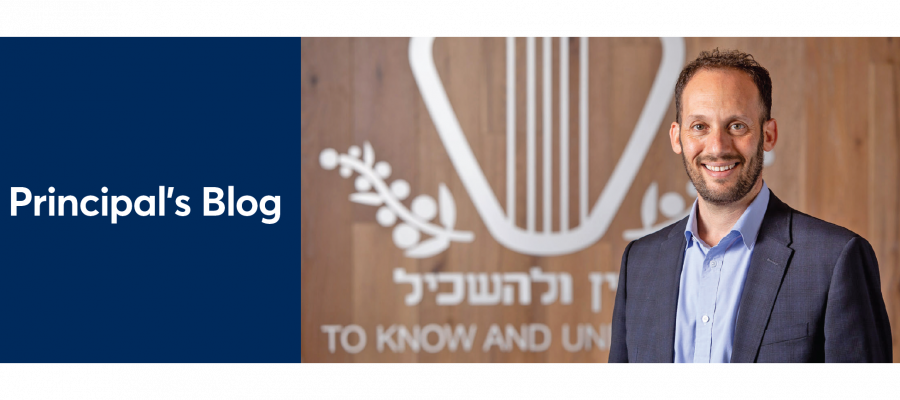
Improving emotional health
“Think about your children when they’re in their 20s, what do you hope for?” This question was posed by Dr Marc Brackett to the audience at his talk this week at The King David School entitled ‘Emotional Intelligence: The Key to Raising Happy, Healthy and Successful Kids’.
Dr Brackett has collated data on responses to this question and found that parent responses invariably revolved around their children flourishing emotionally. Happiness, wellbeing, persistence and resilience were all top answers, whereas a more traditional societal metric of success, financial independence, only rated as the tenth most popular response. Dr Brackett contends that if parents want their children to acquire the top traits, it is vital that they deliberately and skilfully assist their children with strong emotional intelligence.
Dr Brackett who is founding director of the Yale Center for Emotional Intelligence has been a friend of our school for many years since we instituted his RULER Emotional Intelligence model in our ELC and Junior School more than a decade ago. Since that time, Dr Brackett’s program has been adopted by 5000 schools in 27 countries. Two hundred thousand educators have been trained in the methodology and five million students are exposed to RULER globally.
RULER is an acronym for Recognising emotions in oneself and others; Understanding the causes and consequences of emotions; Labelling emotions with a nuanced vocabulary; Expressing emotions; and Regulating emotions with helpful strategies.
Dr Brackett began his presentation by training parents in his popular tool ‘The Mood Meter’. The Mood Meter is used to assist students to recognise their emotional state by asking them to plot it on a graph with axes of ‘pleasantness’ and ‘energy’.
Labelling an emotional state with specificity allows us to tailor a targeted response that can assist in successfully regulating emotions. Dr Brackett explored this through challenging the audience to articulate the difference between a range of emotions such as anger and disappointment. The audience found it hard to distinguish these and Dr Brackett pointed out that this is because many of us have not had sufficient training to articulate and describe our emotions.
He posited that the state of global emotional health is poor. He stated that often how we feel and how we want to feel is out of balance and cited as an example that over 90% of Yale students are reporting stress and anxiety and the university now employs more than 50 psychologists, a five-fold increase from when he began working there.
Dr Brackett said that the key to emotional intelligence begins with accepting permission to feel. He explained that in his research, when he asks people how much they learned about emotions at home or school most say little or none.
He added that when he asks the participant if they had a ‘feelings mentor’ only 40% say yes. He suggested that becoming a feelings mentor, or ensuring that children have access to one, is the best thing we can do for their emotional intelligence development. He said that his research into the traits of effective emotional mentors listed the key characteristics as being empathetic, non judgmental and a good listener.
He explained that those who had an effective mentor showed higher levels of adult regulation, much better coping skills, higher quality sleep, better mental and physical health and greater life satisfaction and purpose in life.
He explained that this was the case because emotions drive our attention and memory, our decision making, our relationship quality and our performance.
Next, Dr Brackett articulated his premise that the key to being a good emotional mentor was to be a scientist and not a judge.
He explained that an emotion ‘scientist’ is open, curious and reflective; views all emotions as information; is in learner mode; wants to be granular and has a growth mindset.
By contrast, a ‘judge’ is critical and closed; can view emotions as error; is in ‘knower’ mode; clumps emotions as good or bad; and has a fixed mindset.
Dr Brackett then proceeded to explain the tools that make up the RULER program. These include the Charter, the Mood Meter, the Meta Moment and Best Self Adjectives. These along with other resources are explained in detail on his website.
I am so proud that our school continues to lead through practising research based techniques to best prepare our students to thrive now and into the future. Through our serious investment of time and resource into the emotional intelligence and wellbeing of our students, we ensure that we fulfil our commitment to producing wonderful menschen, who have a strong sense of self and are ready to contribute positively to their community.
Shabbat Shalom,
Marc Light
